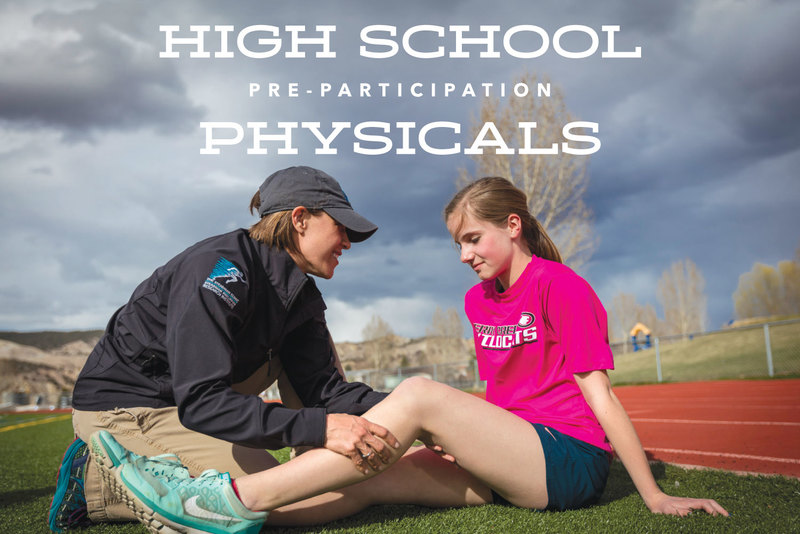News
HPV Vaccines Offer Protection Against Cancer
VAIL CO The most dangerous strains of Human Papillomavirus (HPV) which are linked to causing cervical cancer could be a problem of the past as more young people get vaccinated against the sexually transmitted infection (STI).
According to the Centers for Disease Control (CDC) about 79 million Americans are currently infected with HPV and approximately 14 million people become newly infected each year making it the most common STI in the nation. But there is hope. Both Gardasil and Cervarix protect teens and young adults from the most dangerous strains of HPV strains 16 and 18. And researchers continue to discover new ways of guarding young people from more of the numerous strains of HPV.
It's important for parents and young people to be aware of the options available to protect them from sexually transmitted infections says Tania Engle physician assistant and internal medicine clinic manager at Vail Valley Medical Center. Families should feel encouraged to speak to their physician and learn more about HPV vaccinations.
Last year Gardasil a vaccination that protected girls and boys against the most dangerous strains of HPV defended against four strains. In December 2014 the latest version of Gardasil offered protection from nine strains. As a result it prevents infection from the HPV strains that cause nearly 70 percent of cervical anal vaginal vulva and throat cancer and cause about 90 percent of genital warts.
HPV infections fall into two categories: low-risk and high-risk and more than 99% of all cervical cancers are caused by high-risk HPV viruses. The American Cancer Society predicts that about 12900 women will contract cervical cancer in 2015 and roughly 4100 women will die from the disease this year.
I tend to see the effects when people are not vaccinated primarily in women who do not have pap smears for an extended period of time says Engle.
According to the CDC HPV is so common that more than 90% of sexually active men and 80% of sexually active women will be infected with at least one type of HPV at some point in their lives.
Debate over Gardasil and Cervarix (and vaccinations in general) causes concern in some parents. Adverse effects associated with the cancer vaccinations have been reported including autoimmune disease development a nerve disease called Guillain-Barré syndrome and low white blood cell counts. Merck the makers of Gardasil and the CDC monitor the safety of the vaccination on an ongoing basis and cite the most common side effects include redness swelling or pain at the injection site a mild or moderate fever headaches and gastrointestinal distress.
The symptoms are rare and can vary but generally last no more than three days Engle says. The reactions that people are having tend to be similar in this vaccine as other vaccines for shingles chicken pox etc.
The risks and benefits of HPV vaccination have been studied and most physicians recommend vaccination because the benefits such as prevention of cancer far outweigh the risks of possible side effects.
The Food and Drug Administration has approved Gardasil for females ages 9 through 26 and males ages 9 through 15. Cervarix is approved for females ages 10 through 25. While HPV may not cause cancer in males the vaccine helps prevent men from contracting and then spreading the infection.
The vaccinations are received through a series of three injections in the arm over a six-month period. The vaccines spur the immune system to develop antibodies against HPV which is why doctors recommend pre-pubescent girls and boys get vaccinated early on however the CDC encourages catch-up vaccines for unvaccinated females up to age 26.
Even if a person already has HPV Engle recommends getting Gardasil which she prefers to Cervarix because it covers more strains of HPV.
If you already have HPV it won't get rid of it but it will protect you against other strains you don't have Engle says.
After receiving the vaccination it's important to remember that it doesn't prevent all types of HPV or any other sexually transmitted infections. Condoms or abstinence still are the most effective ways to prevent STIs. In addition most cervical cancers can be detected early in women who receive routine Pap smears.
This is one small approach to prevent STIs Engle says but it's a big step in preventing cervical cancer.
About Tania Engle
Tania is a physician assistant (PA) who specializes in women's health and chronic disease such as diabetes coronary artery disease and asthma. She received her biological chemistry degree from Bates College and her masters of science from the University of New England. Tania is fluent in English Spanish and Portuguese.
Tania works out of the Edwards office located at 322 Beard Creek Road Edwards CO 81632. For more information or to make an appointment call (970) 477-3090 or visit www.vvmc.com/InternalMed
About Vail Valley Medical Center
From modest beginnings in 1965 VVMC has grown into one of the world's most advanced mountain hospitals providing Olympic-quality sports medicine leading evidence-based research modern cancer care and extensive cardiology services all top-quality services with exceptional outcomes. An independent nonprofit medical center VVMC keeps hundreds of jobs and resources local better serving our community and visitors. Providing superior health services with compassion and exceptional outcomes VVMC offers expanding services low infection rates free community services and top-rated patient satisfaction scores.
More News
-
New!
More

Vail Health and The Steadman Clinic Offer Free Physicals for High School Athletes
Physicals will be offered in both English and Spanish on two dates, May 17 at Battle Mountain High School and May 24 at Eagle Valley High School.
-
New!
More

Good Stress?
“Good stress” sounds like an oxymoron. After all, we’ve always been told stress is bad for our health. However, it’s possible that some stressors can actually be good for us and even enhance our lives.
-
More

Considering Cosmetic Procedures
As we age, our skin loses its elasticity and can leave some feeling less confident in their physical appearance. Cosmetic procedures can empower individuals to enhance their self-esteem and improve their overall quality of life.
